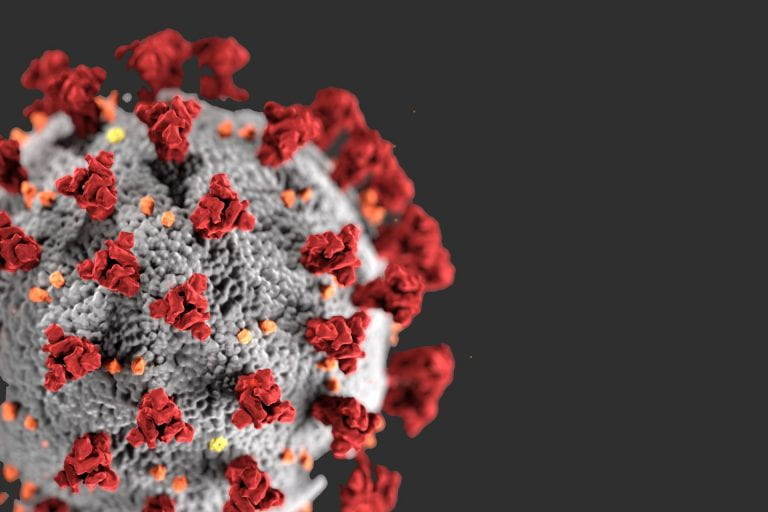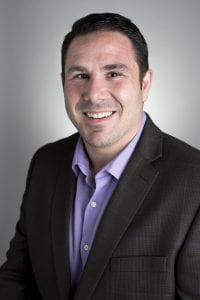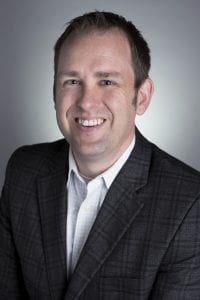Faculty at Kelley offer their innovative and entrepreneurial expertise to fighting COVID-19
Posted on

BLOOMINGTON, Ind. – Faculty at the Indiana University Kelley School of Business are using innovative methods and their personal resources in the battle against the novel coronavirus pandemic that has now affected the lives of more than 3,000 Hoosiers and more than 245,000 people nationwide.
Many of those efforts arose from an “Idea Sprint” organized by several management and entrepreneurship professors. They pulled together more than 200 entrepreneurs, coders, engineers, medical doctors, nurses, venture capitalists and other business professionals, who worked virtually and developed 19 potential solutions for problems arising from COVID-19.
 Participants came from all across the United States and Canada and from four other continents, Australia, Europe, Asia and South America. The initiative was organized in just three days and led to the development of social initiatives addressing issues such as the shortage of surgical masks, grocery stock outs, displaced workers, small business matchmaking and online educational challenges now impacting students across the country.
Participants came from all across the United States and Canada and from four other continents, Australia, Europe, Asia and South America. The initiative was organized in just three days and led to the development of social initiatives addressing issues such as the shortage of surgical masks, grocery stock outs, displaced workers, small business matchmaking and online educational challenges now impacting students across the country.
“We all know there are great ideas out there related to this crisis. We wanted to find a way to quickly bring entrepreneurs, medical professionals, and technologists from around the world together to work intensively on solutions,” said one of the organizers, Regan Stevenson (pictured right), assistant professor of entrepreneurship and management and the John and Donna Shoemaker Faculty Fellow. “In order to do this, we knew we needed to move fast and step outside the institutional structure to get this movement off the ground immediately.”
 “As the ideas came in, we recognized that people were sending them from all over the world,” added Matthew Josefy (pictured left), assistant professor of strategy and entrepreneurship. Some participants voiced their excitement about being mobilized in this way to pass their time in quarantine after returning from affected countries, with one saying “I haven’t been able to leave my house in a week. I’ve been here on the sidelines, wishing there was some way I could plug in and do something.”
“As the ideas came in, we recognized that people were sending them from all over the world,” added Matthew Josefy (pictured left), assistant professor of strategy and entrepreneurship. Some participants voiced their excitement about being mobilized in this way to pass their time in quarantine after returning from affected countries, with one saying “I haven’t been able to leave my house in a week. I’ve been here on the sidelines, wishing there was some way I could plug in and do something.”
What happened first at Kelley is now being imitated by others worldwide, including a joint project by TechStars and GoogleforStartups and initiatives at Texas A&M University, Valdosta State University and MassChallenge. Facebook and Microsoft are partnering with the World Health Organization for a “coronavirus hackathon.”
Projects making an impact
Many of the projects are in various degrees of development. One project — #RealHeroesWearMasks – will soon direct more than 20,000 masks to 32 hospitals in Chicago, New York City, New Orleans and the states of New York, New Jersey, Indiana, California and Georgia. It also is building alliances with other organizations with a similar goal of increasing the supply of personal protection equipment into the life-saving doctors and nurses who need them.
“Our movement started as a weekend idea sprint which was supposed to be handed off to entrepreneurs who could make it happen,” said Dr. Amani Jambhekar, a Houston-based cancer surgeon and a student in the Kelley Direct online MBA program who contributed the project idea. “It turns out we’re the entrepreneurs, and this project has already engaged so many healthcare professionals looking for a way to give back to our front lines.”
 Kelley faculty, students and administrators have been working behind the scenes, using business contacts to locate makers of N95 and surgical masks. Students in the 2019 and 2020 classes of Kelley’s online Master of Science in Finance degree program with Tsinghua Holding Zijing Education are donating about 20,000 masks. Jun Yang (pictured right), director of the Institute of Corporate Governance, associate professor of finance and Arthur M. Weimer Faculty Fellow, helped make the arrangements.
Kelley faculty, students and administrators have been working behind the scenes, using business contacts to locate makers of N95 and surgical masks. Students in the 2019 and 2020 classes of Kelley’s online Master of Science in Finance degree program with Tsinghua Holding Zijing Education are donating about 20,000 masks. Jun Yang (pictured right), director of the Institute of Corporate Governance, associate professor of finance and Arthur M. Weimer Faculty Fellow, helped make the arrangements.
They were purchased from reputable producers in China and are being shipped to the United States. Masks will go to hospitals in Indianapolis, New York City, Houston, Los Angeles, New Orleans, Highland Park, New Jersey and Marietta, Georgia. #RealHeroesNeedMasks is helping to direct them to where they are most needed.
Other projects coming out of Kelley’s idea sprint that are at various stages of development include:
- ReScale Med, a non-profit that wants to increase the number of medical personnel available to set up ventilators and manage patients on them. It is curating medical training content to increase the number of available frontline resources and is currently seeking qualified volunteers and partnerships with ventilator manufacturers. More information is available by writing pzkokan@gmail.com.
- GroceryBox, a donation-based model for delivering groceries to older ones and the needy. Boxes consisting of the basics for the week would be assembled by volunteers who also would place it in the truck of the recipient’s car. The mostly Bloomington-based team is pursuing the concept with local stores, food pantries and shelters.
- America’s Next Breath, which aims to address the shortage of ventilators by facilitating the donation of unused units and getting them to local hospitals where there is the greatest need.
Faculty working on the ground
Two faculty members in the Department of Operations and Decision Technologies – Jonathan Helm and Aaron Perry — are part of team that IU Health created to develop a model on the impact of COVID-19 patients on its resources.
 The team evolved from researcher initiatives at the Center for the Business of Life Sciences, directed by George Telthorst. Helm oversees the center’s research initiatives.
The team evolved from researcher initiatives at the Center for the Business of Life Sciences, directed by George Telthorst. Helm oversees the center’s research initiatives.
Indiana State Department of Health Commissioner Dr. Kristina Box has said she expects Indiana’s case peak to hit in mid-to-late April. Hospitals in Indianapolis and other cities across the state are preparing for a surge of COVID-19 patients, similar to what is being seen in New York City, Seattle and New Orleans.
Helm (pictured left), an associate professor and Grant Thornton Scholar, researches healthcare operations management and patient flow and health care resource management. Perry, a lecturer, is an expert on predictive modeling and health and clinical informatics.
Business education continues
All of this is happening in addition to continuing to deliver a quality education online to more than 11,000 Kelley students at all levels.
“I have never been more proud to be dean of the Kelley School than I have these last few weeks,” Idalene “Idie” Kesner, dean and the Frank P. Popoff Chair of Strategic Management, said in a message to faculty and staff. “All of you – both faculty and staff – have consistently demonstrated the Kelley tenacity and humility of which we are so proud – not to mention creativity and flexibility.
“Faculty have pivoted on short notice and embraced the idea of online learning,” she added. “Staff are working hard to find creative solutions to support both faculty and the students as they work through the impact of all these changes.”
Leave a Reply